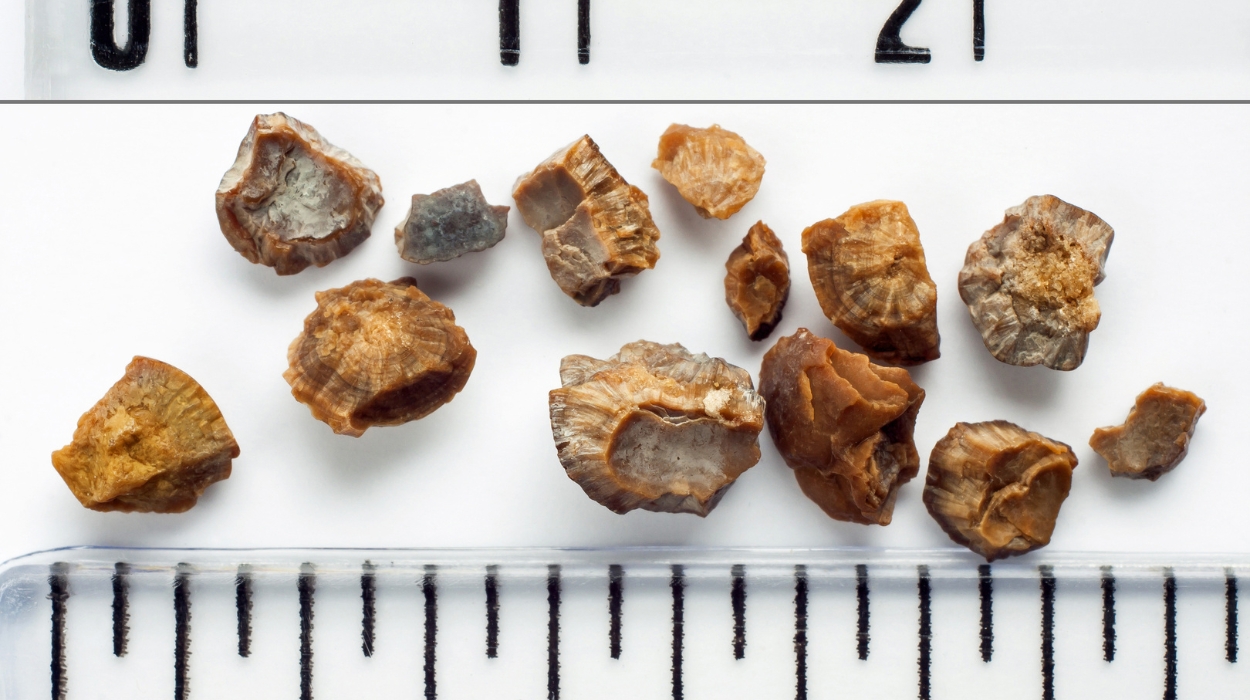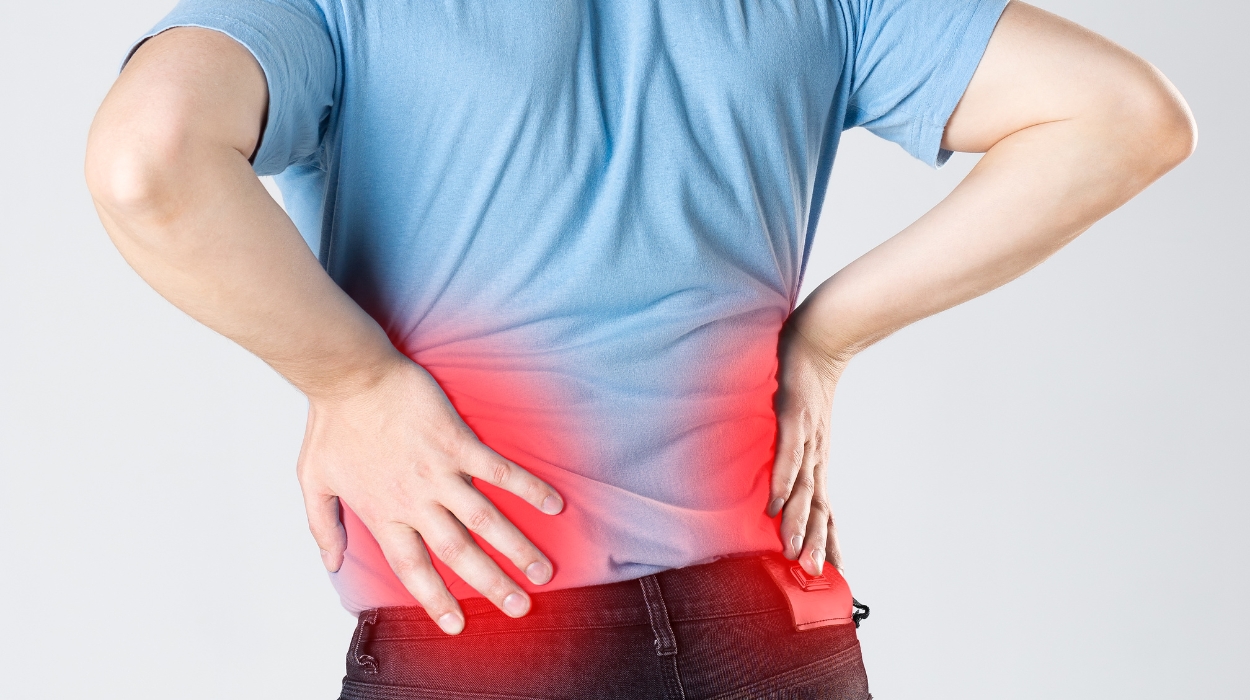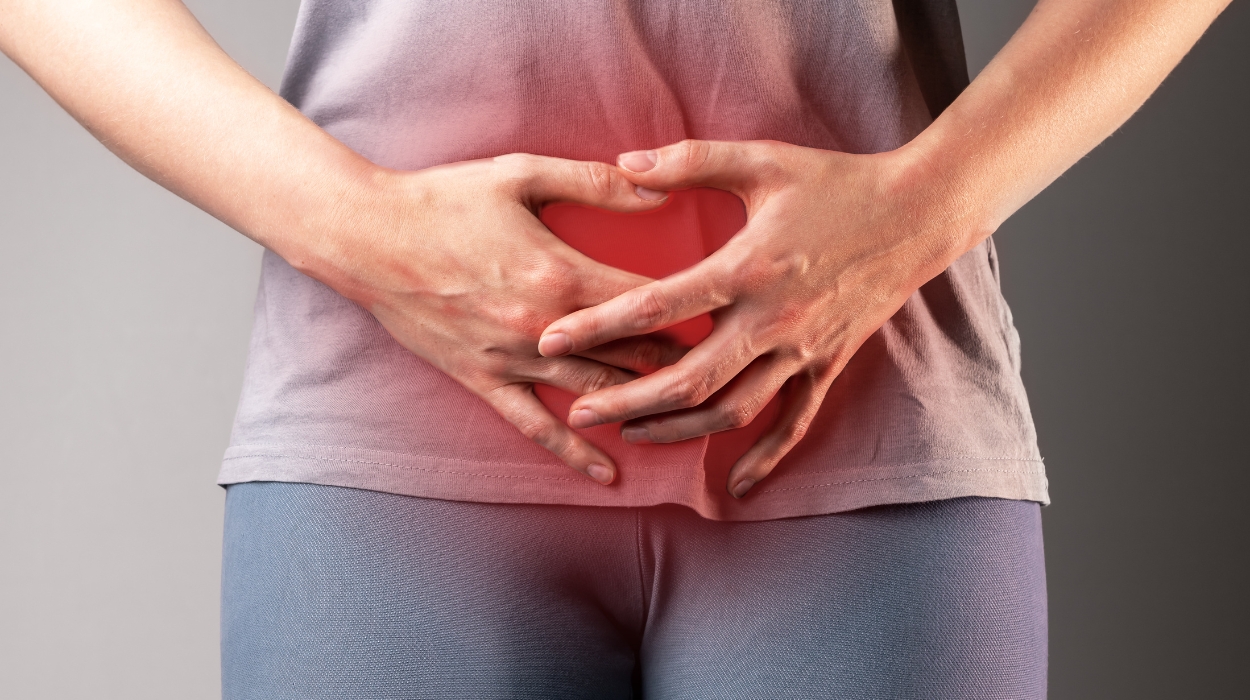 Expert's opinion
Expert's opinion
Expert's opinion
The article is a subjective view on this topic written by writers specializing in medical writing.
It may reflect on a personal journey surrounding struggles with an illness or medical condition, involve product comparisons, diet considerations, or other health-related opinions.
Although the view is entirely that of the writer, it is based on academic experiences and scientific research they have conducted; it is fact-checked by a team of degreed medical experts, and validated by sources attached to the article.
The numbers in parenthesis (1,2,3) will take you to clickable links to related scientific papers.
How Does It Feel To Pass A Kidney Stone? What You Need To Know?

How does it feel to pass a kidney stone? Ask anyone who’s had the displeasure of passing a kidney stone and they will tell you it’s no walk in the park.
Fortunately, many people develop kidney stones so small they can pass with little to no pain. In some cases, you’ll never even know you had a stone to begin with!
However, most people develop stones large enough that they feel pain, especially as the stone moves from the kidney to the bladder. The pain can be mild to debilitating. Some stones will not pass on their own, and may need medical attention and even surgery. If you are prone to developing kidney stones, you should talk to your doctor about how changing your diet[1] can reduce your risk factors and how to minimize your discomfort. Ideally, you may be able to prevent kidney stones from recurring and avoid the pain altogether!
How Does It Feel To Pass A Kidney Stone?
How it feels to pass a kidney stone varies from person to person, and based on whether you have a small or large kidney stone. Kidney stone symptoms include:
- Sharp pain in the lower back or flank, which may be worse on one side.
- Pain in the lower abdomen.
- Difficult and/or painful urination.
- Foul smelling urine.
- Dark, cloudy urine.
- Fever.
- Nausea and vomiting.
You should seek immediate medical attention if you have a high fever, severe pain that is not tolerable, prolonged symptoms (especially vomiting), you become unable to pass urine, or you see blood in your urine.
What Are Kidney Stones?

There are several types of kidney stones, also called renal calculi, nephrolithiasis, or urolithiasis.
- Calcium oxalate stones form when oxalic acid from foods like spinach build up and bind to calcium.
- Calcium phosphate stones are associated with excess salt in the diet.
- Struvite stones can result from a urinary tract infection.
- Uric acid stones tend to run in families and have to do with how your body processes uric acid and/or proteins.
- Cystine stones stem from a rare genetic disorder that makes you prone to developing kidney stones.
Kidney stone formation starts with a buildup of specific chemicals and minerals in your body. In the vast majority cases, the problem stems from too much waste product and too little liquid in the urinary tract.
When you are chronically dehydrated, your urine becomes concentrated, allowing minerals to cling together and form stones. For that reason, your risk for kidney stones may be higher[2] if you live in a hot, dry climate, tend to sweat heavily, or have other medical issues that make you prone to dehydration.
Kidney stone risk factors include:
- Dehydration.
- Inflammatory bowel disease.
- Digestive and kidney diseases.
- Gastric bypass surgery.
- Family history or personal medical history of kidney stones.
- Too much salt in your diet.
- Medical history that includes metabolic syndrome[3].
Kidney Stone Symptoms

Even though most people can pass smaller kidney stones unassisted at home, the process can cause severe pain. It can take days to weeks before kidney stones pass on their own.
Larger kidney stones can completely block the ureter, which carries urine from the kidney to the bladder, or even restrict urine flow out from the bladder. Larger stones that can’t pass on their own may need medical interventions such as extracorporeal shock wave lithotripsy, which uses sound waves to break the stone up[4] into smaller pieces.
Even after being broken into smaller pieces, passing a kidney stone could still cause intense pain. Fortunately, over-the-counter pain medication, along with a few other adjustments, may make the discomfort of passing kidney stones more bearable.
Some kidney stones will not pass on their own and require surgery. It’s vital to get prompt medical care for these stones, as they can completely obstruct your urinary tract and become true emergencies.
When kidney stones become symptomatic, the most common complaint is flank pain on one side of the lower back, which may come and go in waves.
Symptoms of kidney stones may also include pain in the lower and upper abdomen, extreme back pain, a burning sensation while urinating, groin pain, foul smelling urine, difficulty urinating, or frequent urgency to urinate, sometimes without much urine coming out.
Are There Home Remedies For Kidney Stones?
Although there is no proven evidence that apple cider vinegar for kidney stones works, some very limited research indicates that apple cider vinegar is an effective antimicrobial[5] that fights bacteria frequently associated with urinary tract infections.
If you’re considering adding apple cider vinegar to your regimen, you could incorporate it as a drink, or in gummy form. There are plenty of apple cider vinegar gummies to choose from, and when you’re dealing with kidney stones any potential to decrease your risks helps!
There are many home remedies for how to get rid of kidney stones, but a visit to your doctor should always be your first order of business if you think you may have a stone.
In some cases, a kidney stone may become a true emergency. If you’re struggling with uncontrollable pain, persistent vomiting, a high fever, or something that doesn’t feel right about your kidney stone symptoms, a visit to the emergency room may be in order.
Passing A Kidney Stone: What It Feels Like?

Stage 1: Kidney Stones Form
Stone forming minerals build up in the kidneys and start to stick to each other, creating deposits. Although not all kidney stones form because of insufficient hydration, lack of liquid in the urinary tract allows urine to become concentrated, which in turn allows minerals and waste products to clump up. Chronic dehydration is one of the most common reasons that kidney stones form.
Fortunately, this part is painless.
Stage 2: The Stone Passes From Kidney To Bladder
This is where most people experience the most severe kidney stone symptoms. Ureters, the tubes that connect the kidneys to the bladder, are among the most sensitive parts of the urinary tract.
As kidney stones move through the ureter, it may spasm, causing waves of intense pain. Because the ureter is narrow, this is where a kidney stone is most likely to get stuck.
Acute renal colic usually occurs when a kidney stone obstructs the ureter[6]. It’s associated with flank pain, lower abdominal pain, nausea, and vomiting.
Stage 3: The Stone Reaches The Bladder
When a kidney stone reaches the bladder, it can cause urine to back up. You may feel a frequent, urgent need to pee, but for most people the hard part is over by this stage.
You may still experience some discomfort, but the most intense pain signals typically come from the ureter, and once kidney stones pass into the bladder, symptoms improve significantly.
Stage 4: Hasta La Vista, Kidney Stone
The urethra is the final part of the urinary system, where urine is flushed out of the body. It’s a larger and less sensitive structure than the ureter, so most stones that are small enough to reach this stage don’t cause much pain on the way out.
How long the pain from your kidney stone lasts depends largely on the size and location of your stone. However, drinking plenty of water to help flush the stone out can significantly speed up the process in some cases.
Preventing kidney stones from happening again is your best bet for avoiding a repeat of the unpleasant experience of passing a kidney stone.
Conclusion
The experience of passing a kidney stone varies from person to person, and often depends on the size of your stone. In many cases, over-the-counter pain medications may help your kidney stone feel less intense as it works its way through your urinary system.
Don’t hesitate to seek medical attention if you think you might have a kidney stone. According to the National Kidney Foundation, kidney stones may increase your risk[7] for developing kidney disease. You’re also more likely to form more kidney stones after you have had one.
Even though many kidney stones can pass on their own, they can also become serious emergencies in some cases.
Frequently Asked Questions
Not necessarily! Many kidney stones develop and pass on their own with little or no discomfort.
Absolutely! A diet that puts excess strain on the kidneys, creates more urinary minerals to build up, or doesn’t include sufficient hydration can make you more prone to kidney stones.
Yes. Although most kidney stones will pass on their own without medical intervention, it’s important to seek medical attention if you think you have a kidney stone so that you can get a proper diagnosis, ensure your stone does not become an emergency, and make a plan to prevent more kidney stones in the future.
There is very little proven evidence that apple cider vinegar will help dissolve kidney stones in the urinary system, but very limited research suggests potential for apple cider vinegar to decrease risks for urinary tract infections, which can be associated with kidney stones.
+ 7 sources
Health Canal avoids using tertiary references. We have strict sourcing guidelines and rely on peer-reviewed studies, academic researches from medical associations and institutions. To ensure the accuracy of articles in Health Canal, you can read more about the editorial process here
- and, D. (2023). Eating, Diet, & Nutrition for Kidney Stones. [online] National Institute of Diabetes and Digestive and Kidney Diseases. Available at: https://www.niddk.nih.gov/health-information/urologic-diseases/kidney-stones/eating-diet-nutrition.
- Utsouthwestern.edu. (2023). Lots of water, small dietary changes can help prevent kidney stones, UTSW expert says. [online] Available at: https://www.utsouthwestern.edu/newsroom/articles/year-2023/june-prevent-kidney-stones.html.
- Chang, C.-W., Ke, H.-L., Lee, J.-I., Lee, Y.-C., Jhen-Hao Jhan, Wang, H.-S., Shen, J.-T., Tsao, Y.-H., Huang, S.-P. and Geng, J.-H. (2021). Metabolic Syndrome Increases the Risk of Kidney Stone Disease: A Cross-Sectional and Longitudinal Cohort Study. [online] 11(11), pp.1154–1154. doi:https://doi.org/10.3390/jpm11111154.
- Ufl.edu. (2023). Extracorporeal Shock Wave Lithotripsy (ESWL)» Department of Urology» College of Medicine» University of Florida. [online] Available at: https://urology.ufl.edu/patient-care/stone-disease/procedures/extracorporeal-shock-wave-lithotripsy-eswl/.
- Darshna Yagnik, Serafin, V. and Shah, A. (2018). Antimicrobial activity of apple cider vinegar against Escherichia coli, Staphylococcus aureus and Candida albicans; downregulating cytokine and microbial protein expression. [online] 8(1). doi:https://doi.org/10.1038/s41598-017-18618-x.
- Patti, L. and Leslie, S.W. (2023). Acute Renal Colic. [online] Nih.gov. Available at: https://www.ncbi.nlm.nih.gov/books/NBK431091/#:~:text=Acute%20renal%20colic%20is%20a,associated%20with%20nausea%20and%20vomiting.
- National Kidney Foundation. (2021). Kidney Stones. [online] Available at: https://www.kidney.org/atoz/content/kidneystones#what-kidney-stone.



